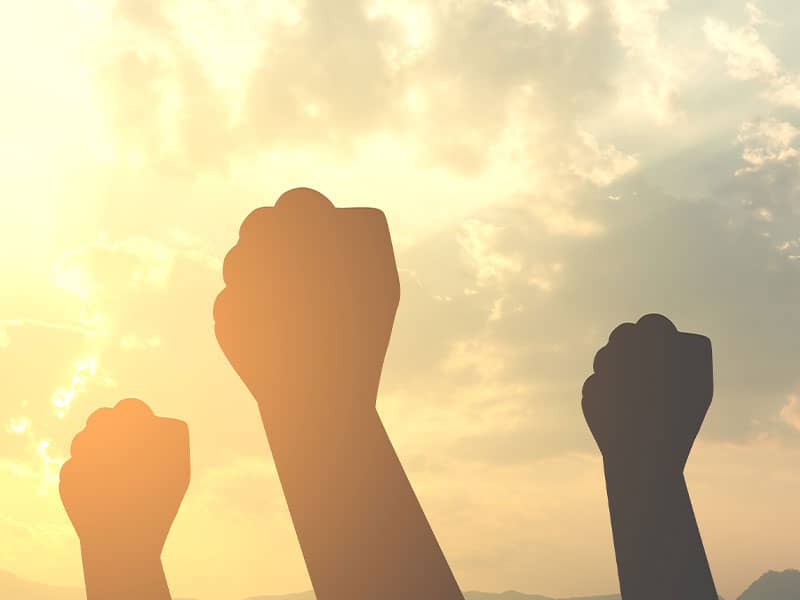Seven months after he was lifted from the sea--his mother lost in that desperate journey to American shores--Elian took off in one of two chartered planes with his father, family, and friends to return to a nation that calls him its "boy hero" yet vowed to give him a normal life.
His father, Juan Miguel Gonzalez, said at Washington Dulles International Airport: "We are very happy to be going home." He thanked the American people and the government for their support and expressed the wish for better relations between Cuba and the United States.
The high court wrote the last chapter of Elian's tortuous journey with decisive brevity, issuing an order rejecting a formal appeal filed by the boy's Miami relatives and a separate emergency request to postpone his departure.
Within hours, the boy who captivated Americans at every turn--whether mischievously playing outside his relatives' home, screaming in fright as federal agents snatched him from that house, or smiling back in the arms of his father--was on his way.
"The legal battle is over," said Gregory Craig, attorney for Juan Miguel.
The Miami relatives who had fought so long to keep Elian in the United States had no immediate comment.
In the end, after the months of heated words, high emotions, legal wrangling, and his seizure by federal agents in the home of his Cuban-American relatives, Elian's course was set by a brief order from the high court.
"The application for stay presented to Justice Kennedy and by him referred to the court is denied. The petition for a writ of certiorari [the appeal] is denied."
Before leaving in a motorcade for Dulles, Juan Miguel Gonzalez thanked his hosts at the Youth for Understanding International Exchange in Washington's Cleveland Park neighborhood for their hospitality.
"We've made a lot of really nice friends, and we appreciate your humanity and your kindness and your warmth and understanding to me and my family in a period that has been difficult for us," he told them in Spanish.
Elian and his Cuban playmates were given pillow globes. Gonzalez got a book to give to Cuban President Fidel Castro on the organization's behalf. An inscription read, "We hope that someday soon, we will be able to establish cultural relations and cultural normalization between Cuba and the U.S., and would be willing to play a role in that."
Their passions stoked for months over the custody dispute, Cubans were urged by their communist government to remain calm.
"Now more than ever, our population must behave with the most dignity, serenity, and discipline," the government said on Cuban state television.
People in Cardenas, Elian's hometown, said friends were preparing to go to Havana to greet him. But no plans were announced for a splashy homecoming.
Summoned by the government, Cubans had demonstrated by the hundreds of thousands for the return of the boy they call not just a hero but a "symbolic child." But Cuban officials said in anticipation of the boy's eventual return that they would try to give him a normal life.
Cubans obeyed requests not to go overboard in welcoming home Elian, who received an enthusiastic but restrained reception--with Castro noticeably absent--when he returned to his communist homeland on Wednesday.
Several hundred schoolchildren from Cardenas cheered and waved small red, white, and blue Cuban flags as Elian appeared at the door of the plane minutes after it landed in Havana.
Ricardo Alarcon, president of Cuba's National Assembly, was the highest ranking Cuban official on hand to greet Elian, his family, and schoolmates upon their arrival Wednesday night, the government said in a statement read on state television.
Asked at an earlier White House news conference if he had any thoughts about sending Elian back to Cuba, President Clinton said, "If he and his father decided they wanted to stay here, it would be fine with me."
He said, however, that Juan Miguel was determined to be "a good father, a loving father, committed to the son's welfare. And we upheld here what I think is a quite important principle, as well as what is clearly the law of the United States. Do I wish it had unfolded in a less dramatic, less traumatic way for all concerned? Of course I do."
Attorney General Janet Reno said she was "very pleased that the Supreme Court declined to review the case."
"This little boy now knows that he can remain with his father," Reno added. "All involved have had an opportunity to make their case--all the way to the highest court in the land. I hope that everyone will accept the Supreme Court's decision and join me in wishing this family, and this special little boy, well."

